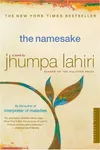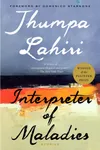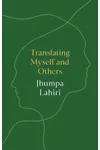Picture a storyteller who weaves tales of cultural crossroads with breathtaking grace—meet Jhumpa Lahiri! Born to Indian immigrants and raised in America, Lahiri’s Pulitzer Prize-winning stories capture the Indian-American experience with heart and nuance. Her works, like Interpreter of Maladies and The Namesake, invite readers into worlds where identity and belonging dance in delicate balance.
With her lyrical prose and keen insight, Lahiri has become a literary beacon, bridging continents and generations. Ready to dive into her story? Let’s explore the life, works, and lasting impact of this modern master.
The Making of Jhumpa Lahiri
Jhumpa Lahiri was born on July 11, 1967, in London to Bengali Indian parents, but her story truly began in South Kingstown, Rhode Island, where she grew up. As a child of immigrants, Lahiri navigated dual identities, a theme that would define her work. She studied English literature at Barnard College and later earned multiple degrees, including a Ph.D. from Boston University. Her early career included teaching and writing short stories, which she honed with quiet precision, drawing from her bicultural life.
Jhumpa Lahiri’s Unforgettable Stories
Lahiri’s debut, Interpreter of Maladies (1999), a collection of nine short stories, stunned the literary world, winning the Pulitzer Prize for Fiction and the PEN/Hemingway Award. The stories explore love, displacement, and cultural tension, like an Indian-American couple grappling with grief or a tour guide in India dreaming of connection. Her novel The Namesake (2003) traces Gogol Ganguli, a young man caught between his Bengali heritage and American life, blending humor and heartache.
Lahiri’s style is understated yet profound, with vivid details that make ordinary moments luminous. Her later works, like The Lowland (2013), a National Book Award finalist, delve into family, political upheaval, and sacrifice, while In Other Words (2016), written in Italian, reflects her love for language and reinvention. Whether in short stories or novels, Lahiri’s themes of identity, migration, and human connection resonate universally.
Why Jhumpa Lahiri Matters
Jhumpa Lahiri’s work has redefined contemporary American literature by centering the immigrant narrative. Her stories give voice to the Indian-American diaspora, illuminating the universal search for belonging. Beyond awards, her influence lies in her ability to make readers feel seen, whether they’re from Kolkata or Kansas. Lahiri’s teaching at Princeton and her translations of Italian literature further cement her as a global literary force, inspiring writers to embrace their own stories.
- Born: July 11, 1967, London, England
- Key Works: Interpreter of Maladies, The Namesake, The Lowland, In Other Words
- Awards: Pulitzer Prize (2000), PEN/Hemingway Award, National Book Award finalist
Grab Interpreter of Maladies or The Namesake and lose yourself in Jhumpa Lahiri’s soulful storytelling. Her worlds are waiting to welcome you!



















